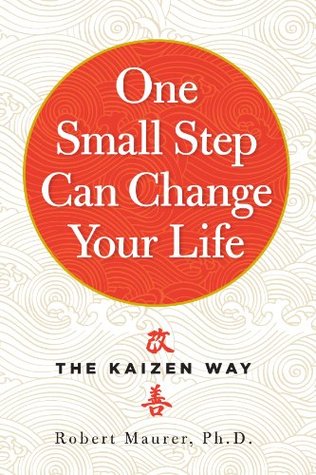More on this book
Community
Kindle Notes & Highlights
Kaizen has two definitions: using very small steps to improve a habit, a process, or product using very small moments to inspire new
Kaizen and innovation are the two major strategies people use to create change. Where innovation demands shocking and radical reform, all kaizen asks is that you take small, comfortable steps toward improvement.
large goal ➞ fear ➞ access to cortex restricted ➞ failure small goal ➞ fear bypassed ➞ cortex engaged ➞ success
How Small Steps Become Giant Leaps Your brain is programmed to resist change. But, by taking small steps, you effectively rewire your nervous system so that it does the following: “unsticks” you from a creative block bypasses the fight-or-flight response creates new connections between neurons so that the brain enthusiastically takes over the process of change and you progress rapidly toward your goal
Your brain loves questions and won’t reject them . . . unless the question is so big it triggers fear.
By asking small, gentle questions, we keep the fight-or-flight response in the “off” position. Kaizen questions such as “What’s the smallest step I can take to be more efficient?”
the mere act of posing the same question on a regular basis and waiting patiently for an answer mobilizes the cortex. A question is not demanding, not scary. It’s fun.
The easy technique of mind sculpture uses “small thoughts” to help you develop new social, mental, and even physical skills—just by imagining yourself performing them!
Repetition is essential: Whatever you do repeatedly, even if for only a few seconds at a time, the brain decides must be important and so begins committing cells to the new behavior.
Never force the process of kaizen; it works only if you let change happen in a comfortable and easy manner.
keep in mind that sometimes, despite your best planning, you’ll hit a wall of resistance. Don’t give up! Instead, try scaling back the size of your steps.
have to learn to trust, to find a human companion and confidante
Research demonstrates that people who use a journal to chart their emotions receive many of the same physical and psychological benefits as those who talk to a doctor or minister or friend.
Whether you wish to train yourself or others to instill better habits, small rewards are the perfect encouragement. Not only are they inexpensive and convenient, but they also stimulate the internal motivation required for lasting change.
“No act of kindness, no matter how small, is ever wasted.”
Think hard before deciding on a small reward. You want the reward to have these three qualities: The reward should be appropriate to the goal.
The reward should be appropriate to the person.
The reward should be free or inexpensive.
If you tend to be your own worst critic, you might try an honest self-compliment as your reward. Other good ideas include taking soaks in the tub, taking short walks, playing your favorite piece of music, making a phone call to a friend, getting a shoulder or foot massage from your partner, or taking a few moments to drink your morning coffee in the luxury of bed.
focus on the moments of change that bring you pleasure.
“Turning toward your spouse in the little ways is also the key to long-lasting romance. Many people think that the secret to reconnecting with their partner is a candlelight dinner or a by-the-sea vacation. But the real secret is to turn toward each other in little ways every day.” —John Gottman
worry or regret, try this: Ask yourself: Do I need to learn to change anything based on this worry or regret of mine? If the answer is yes, then take a step toward that change. If the answer is no (and often it is), scan the room for an object or person that gives you the strongest sense of pleasure. Focus your thoughts on this item for thirty seconds. This process trains your brain to live in the moment.
Instead of aggressively forcing yourself into a boot-camp mentality about change, give your mind permission to make the leaps on its own schedule, in its own time.
small steps matter, that even the shortest contact with another person is inherently important.


